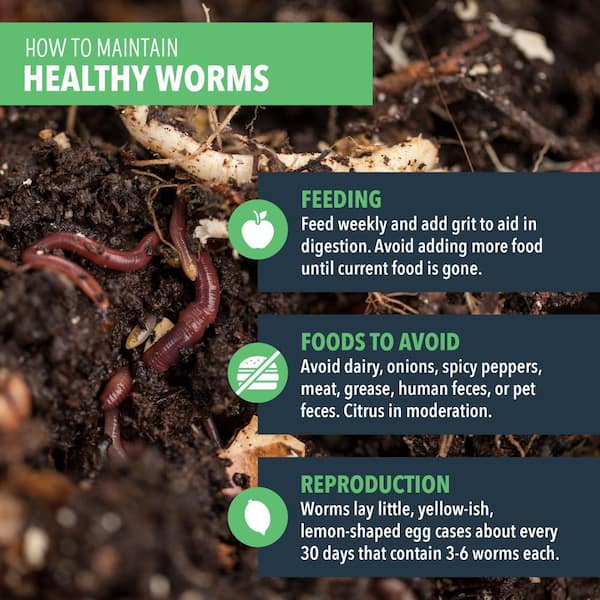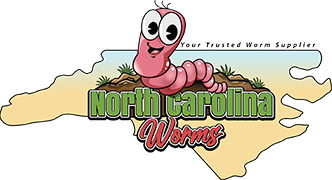The Best Strategy To Use For North Carolina Worms
The Best Strategy To Use For North Carolina Worms
Blog Article
All about North Carolina Worms
Table of ContentsWhat Does North Carolina Worms Mean?How North Carolina Worms can Save You Time, Stress, and Money.Not known Details About North Carolina Worms The Ultimate Guide To North Carolina Worms
Example: 1-gallon of worm spreadings to 4 gallons of potting mix. 1/2 cup in the base of the planting opening for smaller plants. 1 mug for larger plants.
The enhancement of tea can also include raised microbial biomass to your dirt. You can always side-dress your plants with worm spreadings any time. Simply keep in mind, the microorganisms will certainly die if exposed to UV rays (Sunlight), so make sure to cover the castings with an inch or so of dirt.
This frustrated them for years until the screening techniques came to be better. It would get better(with even more castings), level off, and after that decline. As well many worm castings would certainly accelerate the development to a pace that the plant might not recoup from.
The Only Guide for North Carolina Worms
I have expounded the merits of worm spreadings for regarding 2000 words. Worm spreadings are no various. It takes time to develop quality worm castings.
You can buy them which causes number 2. Worm spreadings certainly cost greater than chemical fertilizers. Worm spreadings are on the more affordable end of natural fertilizers. You will have to determine what is more important. It is very easy to generate percentages of worm castings. (50 gallons annually) It is a much more challenging and very costly investment to produce large quantities of worm castings (Lake Hickory Bait).

Developing a healthy dirt may be the biggest advantage of worm spreadings. We talked about worm castings NPK and additionally the correct nutrient analysis that should use to worm castings.
More About North Carolina Worms
We chatted about some of the downsides connected with worm spreadings. I covered a whole lot of product in this article.
The vertical burrows are generally open, although the worms top the leading with deposit and waste matter. Origins need oxygen for their growth, whereas they produce carbon dioxide that needs to leave the dirt.
Earthworms raise porosity by 2 devices: (1) by developing irreversible burrows, and (2) by boosting dirt gathering. Aggregation is enhanced by the mixing of dirt and natural issue in the earthworms' digestive tracts. Where to buy worms in NC. These highly secure aggregates are deposited by some earthworms in their burrows, and by others at the surface area of the dirt


In one more research, earthworms were approximated to consume 4 to 10 percent of the top 6 inches of the soil every year. Dirt compaction reduces the porosity of the dirt.
North Carolina Worms Fundamentals Explained
Normal earthworm populaces can quickly eat 2 lots of dry matter per acre annually, partly digesting and blending it with dirt. The value of earthworms to mix surface residue with soil becomes very clear in dirts that do not have any kind of earthworms. A lot of our Pennsylvania dirts contend least some earthworms, and the effect of their full lack, consequently, can not be kept in mind.
(https://aurora-directory.com/gosearch.php?q=http%3A%2F%2Fwww.northcarolinaworms.com%2F&x=0&y=0)In these dirts, the formation of topsoil with affordable natural matter material did not take area, leading to inadequate crop development. As soon as the reason was developed, the government of the Netherlands started a campaign to introduce earthworms. After the intro of the earthworms, a dark topsoil layer was created, and plant development raised considerably.
They live mainly from partially disintegrated raw material that is currently integrated in the dirt. They consume their means via the dirt, creating horizontal burrows that they fill with their excrement. These species consume huge quantities of dirt that they blend with absorbed plant residue in their guts. or anecic varieties stay in irreversible vertical burrows that can be 5 or 6 feet deep.
Their burrows continue to be open, although they cap the leading with crop deposit that they pull to the entrance. These types consume considerable amounts of soil that they blend with digested residue in their digestive tracts. Their excrement is primarily transferred at the surface of the dirt. The nightcrawler Lumbricus terrestris is the most popular member of this team.
Report this page